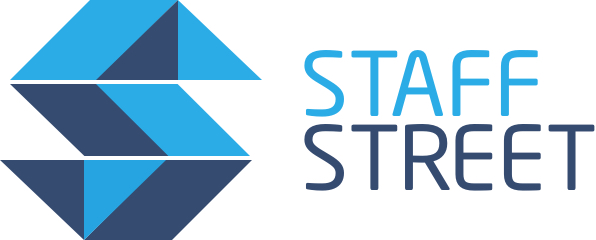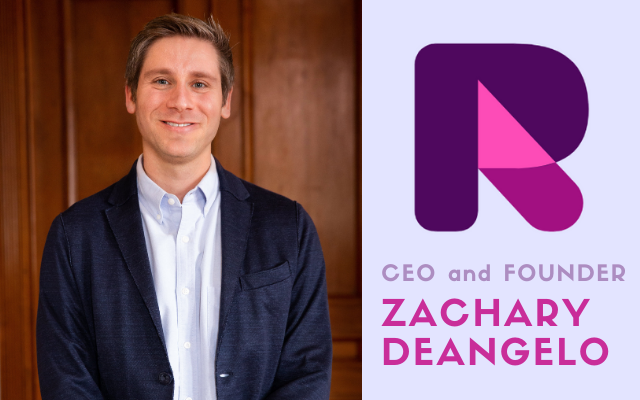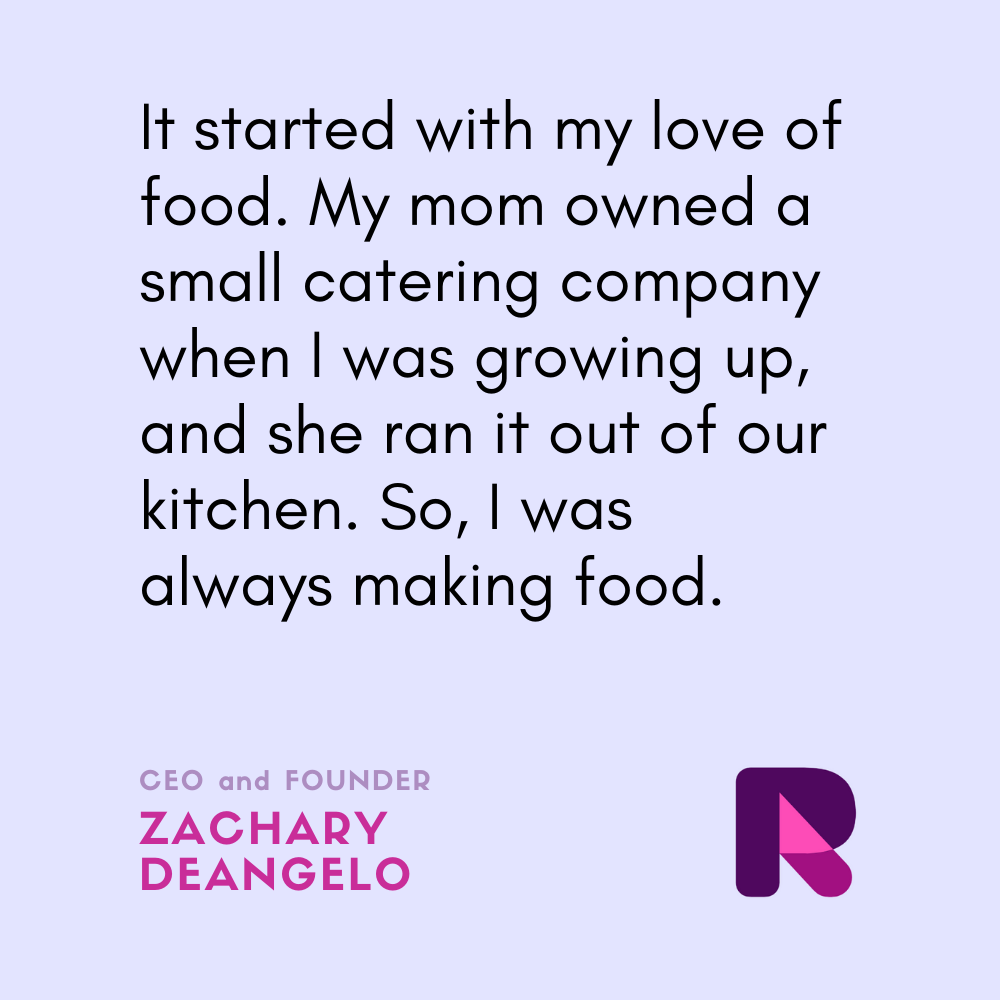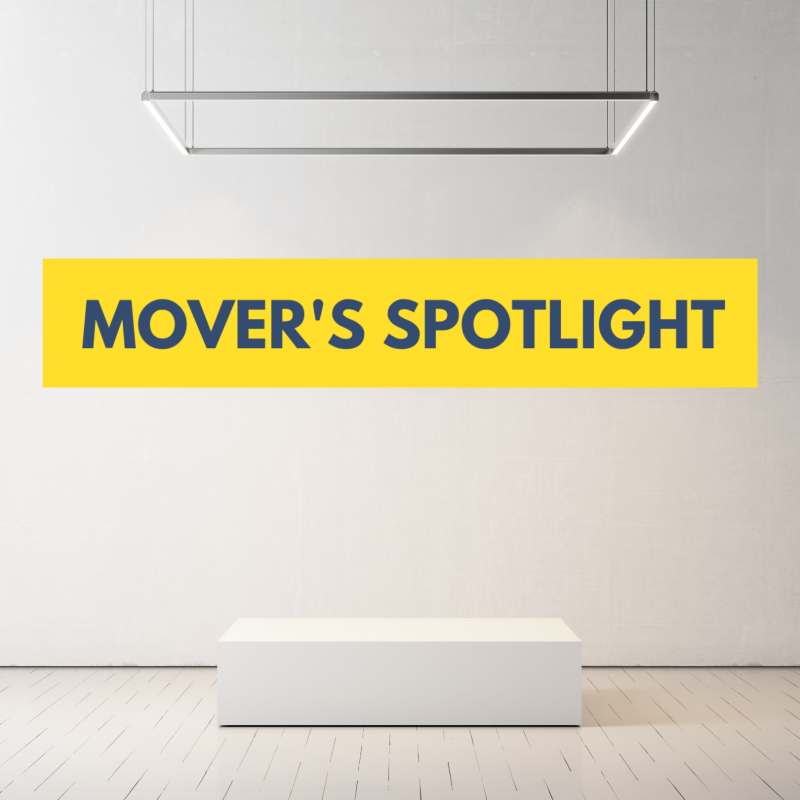
You have a lot of experience in the CPG industry. Probably more than we can fit in one interview. But let’s go back to the beginning. How did you get your start? What drew you to the CPG food business?
Zachary DeAngelo: It always started with my love of food. My mom owned a small catering company when I was growing up, and she ran it out of our kitchen. So, I was always making food. I was surrounded by food, and I would spend my last dollar on a great meal.
I started my career in finance pricing credit default swaps. And it kind of felt like purgatory to me. So, I went to grad school at Babson College, which is focused on entrepreneurship. And I used that as an opportunity to start my first food company.
I co-founded a gluten free cereal brand called Cocomama in 2009, which led me down this path. Which led me to helping grow a baby food company called Little Duck Organics. And after that business, I moved from New York to Boulder, Colorado, which is a CPG hub, and ran sales for a natural pet food company called I and Love and You.
Oftentimes, if you get into this industry, you don’t want to get out of it. And those experiences reinforced my interest in this space, and eventually created the opportunity to start RODEO.
Since then, what would you say changed a lot about you as an entrepreneur? What do you know now that you wish you knew back then?
Zachary DeAngelo: It’s an interesting question. I don’t know if a nugget of knowledge would have changed things dramatically or my trajectory. I think that time is important for any entrepreneur to learn and grow, and build your network.
Over the 11 years or 12 years I’ve been in the industry, the industry itself has changed dramatically. The access to capital. The infrastructure around co-packing. And a number of other service groups, like RODEO, have emerged. In many ways, the changes make it easier to start a CPG brand. But that ease has also made it much more competitive.
Key entrepreneurial skills remain important to navigating that space. Resilience and perseverance. Always looking for the next opportunity. Always evolving. You have to surround yourself with smart people. Make sure your product or service fills a void or solves a problem that needs to be addressed.
I’ve experienced a lot of things in this space, made mistakes and learned from them. In summary, there are simply no short-cuts to this. Time has been important to the evolution of myself and RODEO.
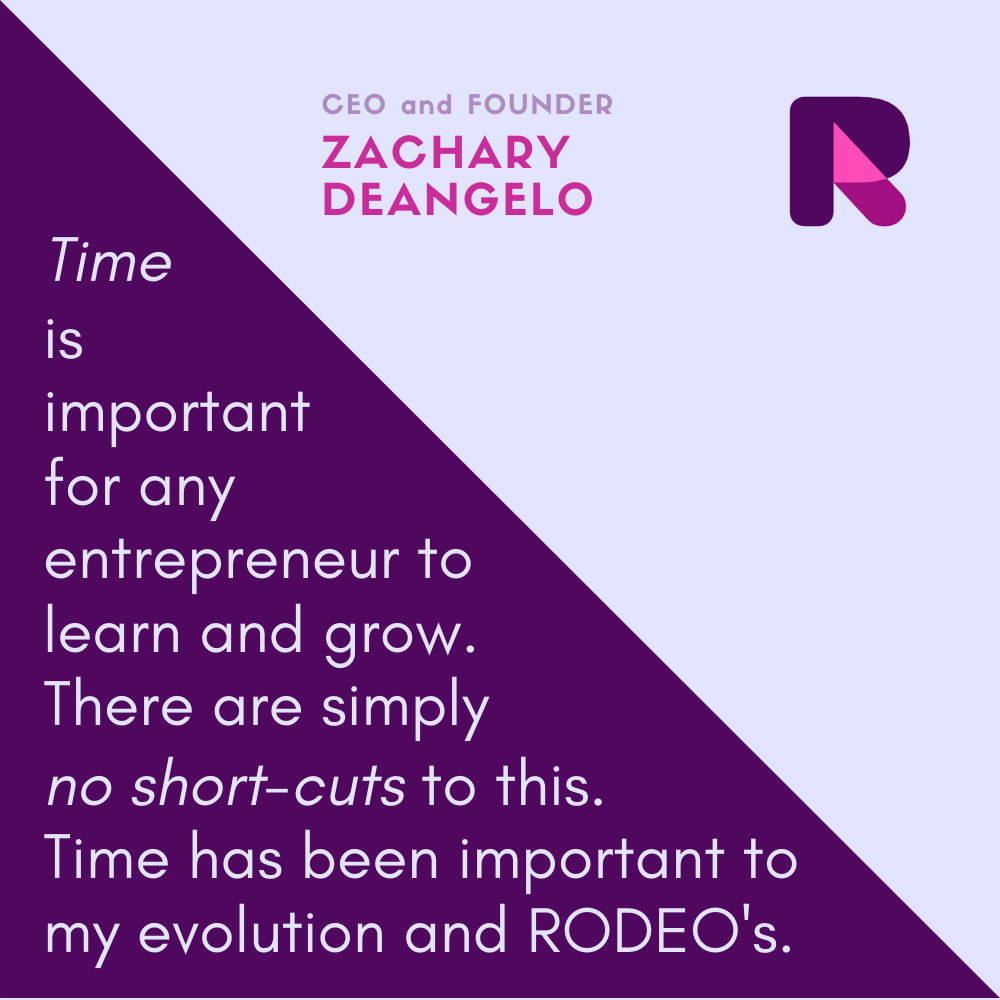
So, let’s focus on Rodeo CPG. What do you guys do and how did it all start?
Zachary DeAngelo: It began with my career long experience in building brands and seeing all the challenges that brands face when they scale. The question was, “Could we create an operational infrastructure that would make it easier and more efficient to scale, that would help mitigate risk, and that would not require entrepreneurs to reinvent the wheel every time?” That was the whole impetus behind RODEO CPG.
That mission continues amidst all the shifts in the industry. Today we are a team of 25-plus full-time professionals offering three key services.
- We offer operational support, the end-to-end supply chain support for brands.
- We also do product development, helping brands scale ideas to commercialization.
- Lastly, we offer a sales management-slash-data platform, which is quickly evolving to a Software-as-a-Service product. It helps brands navigate the industry, execute a plan, and do sales outreach to the vast network of independent retailers.
If I were to take all of that in one phrase, RODEO is a node of connectivity across major stakeholders in the CPG industry.
You have a huge team of people with a lot of deep experience in the CPG industry. Collectively, what do you think draws all of you together to Rodeo CPG? Is there a unifying principle that guides the way you develop the brands that you work with?
Zachary DeAngelo: Our unifying philosophy is we want to break down barriers and we want to solve the big problems for emerging brands. In an industry where there’s a 90 plus percent failure rate, we want to flip that ratio around for the brands that work with RODEO.
All of us at RODEO are consumer product goods junkies. We love it! We’re in the grocery store all the time, we’re buying cool products online, and RODEO affords us the opportunity to work with some of the coolest brands out there and, hopefully, help them build an infrastructure that maximizes their chances of success. I think, in many cases, that’s what brings us together.
There’s also the culture of RODEO which is—I’m biased, of course—but it’s a wonderful place to work. We’re supportive of one another and we care about what we’re doing. There’s no ego involved. Everyone just wants to do an amazing job and work on fun projects. That’s the cohesive picture of what RODEO is today.
Did you guys have a remote work arrangement prior to COVID or did you work in an office before all this?
Zachary DeAngelo: We were always set up to be pretty remote since we have people all over the country, and since our brands are all over the country. We did have a headquarters in downtown Boston that has now sat empty for 11 months. I don’t know if we’re going to re-up that. I think we will always be remote but we have an R&D facility in Brooklyn for product development, which has to be a physical space because it’s a kitchen with a bunch of equipment. But other than that, we’re pretty remote.
In relation to what you said about RODEO having this culture of people who are just happy to work on fun projects, how did you guys keep it together during the chaos of last year?
Zachary DeAngelo: That’s a good question. First of all, we were all very fortunate. Most of the CPG brands proved pretty resilient during COVID. At RODEO, we were also all incredibly lucky we didn’t have to let anybody go as a result of the pandemic. What we did have was a 30 percent dip last March, which led to us agreeing to a salary reduction, which was voluntary in our case.
That, for me, was amazing to see because it proved that there was a lot of buy-in to what we were doing. People were willing to take that risk. Again, I feel as though we have been incredibly fortunate throughout the whole thing. And since then, we’ve more than doubled in size and in scope. We managed to navigate last year’s challenges pretty well and came out stronger on the other end.
If you had to narrow down your company’s marketing or product development principles for small and emerging businesses, what would be the top three rules to live by?
Zachary DeAngelo: I can break it down to one rule for us – which is just to create value. Especially with marketing.
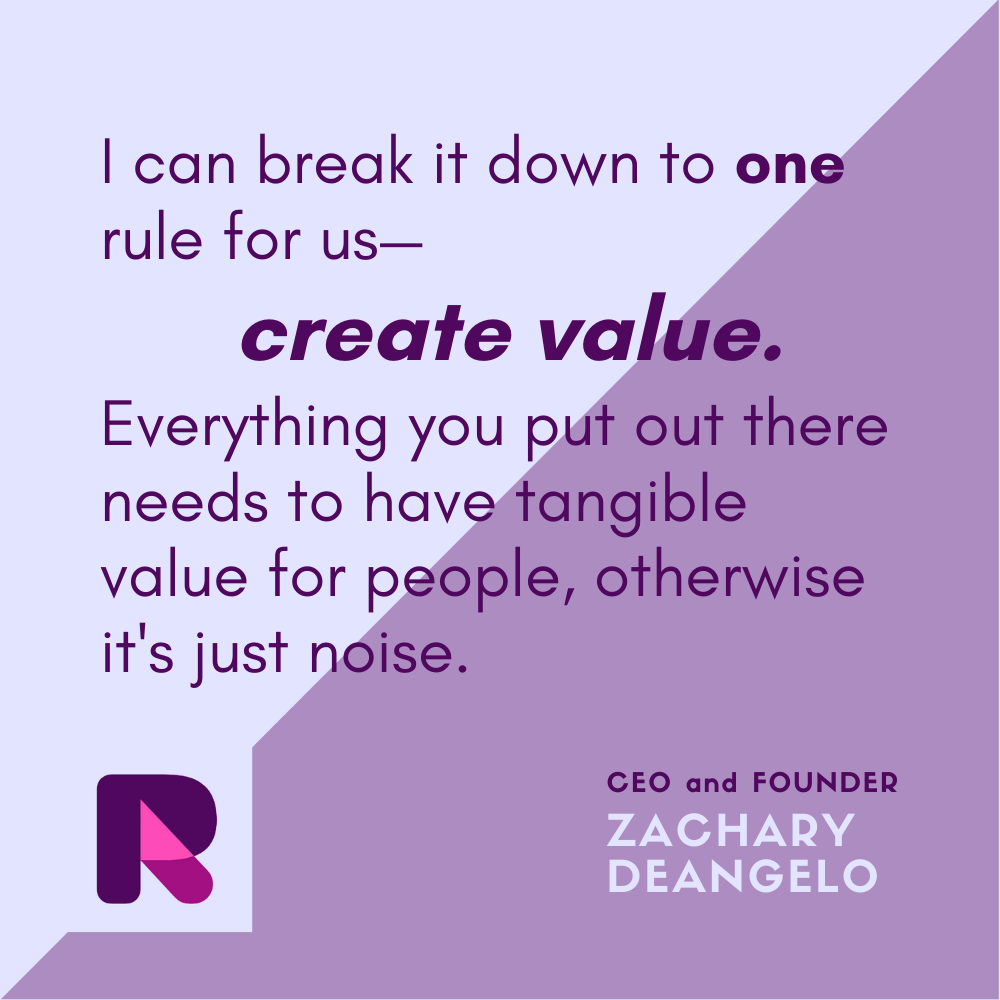
Obviously, there’s no more trade shows these days. There are less means by which to get to know brands, so our whole philosophy has been to encourage our team to create really useful things. For me, that resonates in everything we do, including building our content strategy.
Creating value as a marketing strategy works really well. It encourages real conversations. It provides real value to people’s lives.
On our website and our social media spaces, we’ve given away a bunch of tools that we think brands will find really helpful. That creates good will, which is, by and large, our entire marketing philosophy. Everything you put out there needs to have tangible value for people, otherwise it’s just noise.
We’re focused on creativity this month. Were there particular projects last year that stood out to for its creativity or its ability to speak to the moment?
Zachary DeAngelo: We’ve had all sorts of interesting projects. We were lucky to be involved in a bunch of brand launches like Omsom, Ghia, Moonshot, and Behave, and many other really fun and predominantly direct-to-consumer-driven brands in various capacities.
Our own experience spoke to the trend of companies pivoting their sales strategies by improving brand messaging and maximizing the direct-to-consumer space. All of that was very meaningful. Like last year was a huge year for us and those aforementioned were some of the more fun projects that we were involved in.
Did RODEO CPG make any major pivots or make any strategic decisions last year that really worked in your favor?
Zachary DeAngelo: This whole content strategy for us was a creative achievement. Our head of content Adam Pollack led the charge. He’s done a tremendous job getting the RODEO messaging brand content platform out there. That level of creativity forced us to think about different business models and how we can serve brands more effectively and more efficiently. Eventually, that led us to creating our first SaaS product, which is called PITCHABLE. It is designed to help automate the process to reach the vast network of independent retail.
Creativity is at the core of everything that we do because we have to keep inventing products and business models in a rapidly changing marketplace. The moment we stop doing that, we’re dead.
I think, to your point, creativity must exist in every aspect of your business. Not just in how you market things but also in how you operate. Should we lean on specialization? How do we automate things that we do and make them more effective? Figuring out all of that, to me, speaks to creativity.
Where is RODEO headed to right now? Where do you want to see your clients by the end of the year?
Zachary DeAngelo: We just want to put every client in a position to achieve whatever goals they have for themselves, which can be very different brand to brand.
Some brands want to be acquired. So, how do we get them the growth trajectory and operational infrastructure in order to do that? Some just want to run a profitable business that grows over time. So, how do we give them the resources to hit that trajectory?
What we want to see from our clients’ perspective is us helping them achieve their goals.
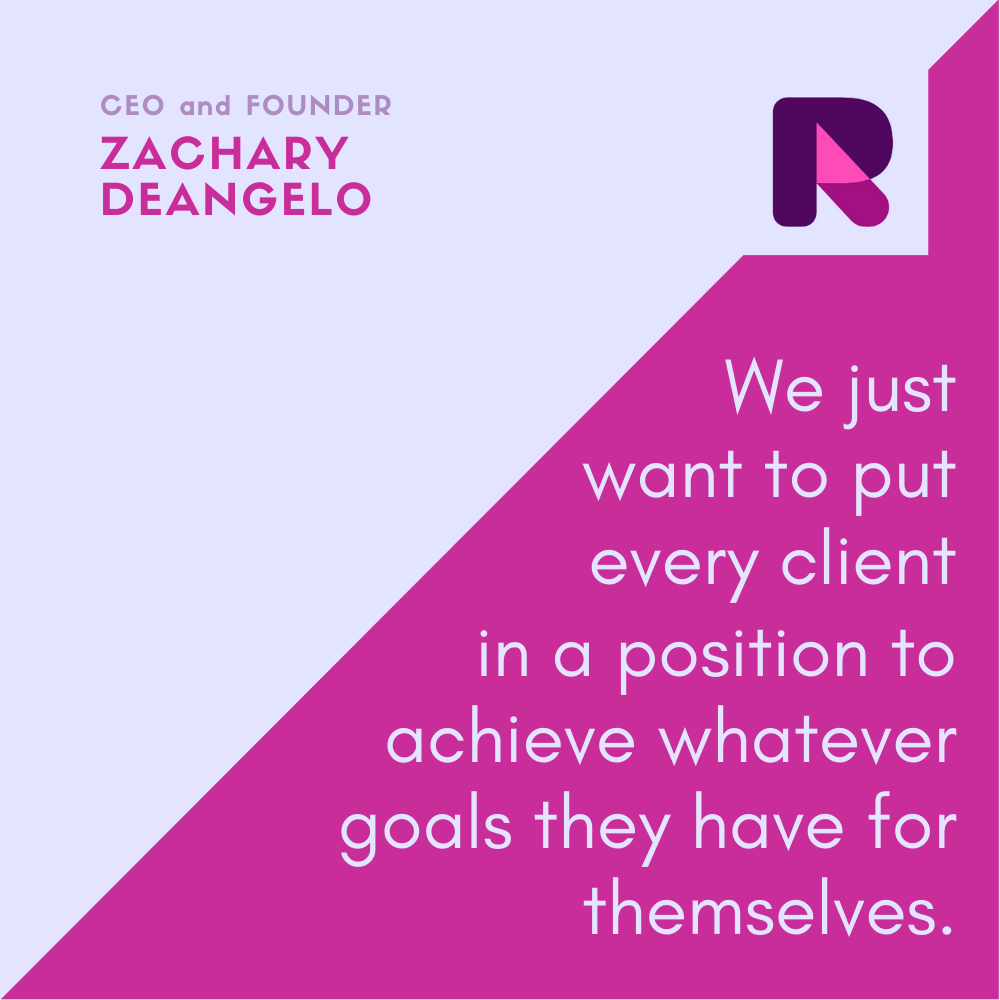
From RODEO CPG’s perspective, our team is going to grow. I want to continue to create really innovative solutions for new and emerging brands. I want to cut through big inefficiencies in the marketplace. This year, I want our brands to become more profitable. I want them to have more transparency in their supply chain. I want them to be able to react more quickly than they would otherwise be able to. And I want to give the broader audience of CPG brands and the people interested in starting CPG products the tools and the resources that they need to avoid some of the biggest mistakes that many of us have made in our careers.
That’s the goal for 2021 and I’m excited about the thing that we are doing to achieve that
Are there particular projects that you have coming up?
Zachary DeAngelo: The SaaS project is a big one for us. We’re trying to build a subscription platform for a lot of tools and services that we provide. In addition, we’re trying to build out a more powerful network across the country with various stakeholders between 3PL and freight groups and co-packing partners. We’re also doubling our R&D facility in the next few months so we will have much broader capacity to bring new products to market.
RODEO sounds like a dynamic company, and you make entrepreneurship sound like a process rather than just hitting goals.
Zachary DeAngelo: That’s a good way to put it. Entrepreneurship is a rigorous exercise. It’s hard, and it requires a ton of work. One common denominator of the team is everyone works really hard. You need to. In order to actually solve a problem.
That, at the end of the day, is what brings us together at RODEO. We’re cohesive because it takes a lot of hard work and time. At the same time, you’ve got to enjoy the whole thing or else, it’s untenable. It’s keeping forward progress going and maintaining momentum to meet your goals.
